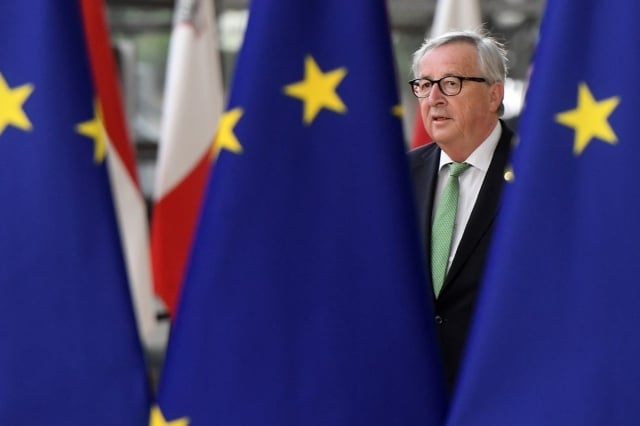The diplomatic but firm response from Brussels came in the form of a letter from European Commission President Jean-Claude Juncker.
The president's two-page message (here in French) came a matter of days after the Swiss government called for a number of “clarifications” in relation to a draft deal designed to set the tone for future bilateral relations between Bern and Brussels.
Read also: Explained- why Switzerland won't be signing draft deal with EU (at least for now)
The draft of the so-called “framework agreement” is key to ensuring Switzerland has access to the all-important European single market. But the Swiss government has struggled to sell the deal to stakeholders wary of EU encroachment on Swiss affairs.
????@EU_Commission President @JunckerEU replies to ?? Federal Council letter: “I want to see this as a positive message which would allow us to sign this fundamental Agreement together at the earliest possible moment.”
— Mina Andreeva (@Mina_Andreeva) June 11, 2019
In its letter of last week, the Swiss government outlined its three chief concerns with the draft deal. These include concerns about the deal’s possible impact on Switzerland’s tough wage protection measures as well as a question mark over the future of state subsidies and a lack of clarity over whether the Alpine country will eventually have to adopt the EU’s Citizen’s Rights Directive.
In response, Juncker said he was “ready to dispel any doubts” about the framework agreement and was “open to any additional discussions” with Switzerland.
A June 18th deadline
But he said these had to result in “an agreement in coming days in form of one or several joint declarations on the clarifications concerned”.
An EU team would be on hand from “today on” to help deliver the necessary clarifications, Juncker wrote.
Read also: What you need to know about the draft Swiss–EU deal
But the EU Commission president stressed that the current deal “will not be renegotiated” and that any clarifications would need to be made in respect to the “letter and spirit” of the current draft deal.
He stressed it was up to both Switzerland and the EU “to proceed quickly” and sign off on the necessary clarifications so that EU commissioners could evaluate the general state of Swiss–EU relations during a key meeting on June 18th.
In a final note of warning, Juncker said it was impossible to predict what the fate of the framework agreement would be if the deal was not signed before his mandate ends in October.
No mention of stock market equivalence
The letter from the outgoing EU president did not mention the issue of so-called stock market equivalence.
An impatient EU has repeatedly attempted to put pressure on Switzerland to sign on to a framework agreement by threatening to remove its stock market equivalence – a move which would see EU-based trading platforms unable to buy and sell Swiss stocks.
That equivalence was granted temporarily for 12 months at the end of 2017 and then again for another six months.
The current deadline for an extension to that equivalence is June 30th but the EU will need to act before that if another extension is forthcoming.
Read also: Swiss residents 'biggest winners' from EU single market




 Please whitelist us to continue reading.
Please whitelist us to continue reading.
Member comments